So it’s 4 am and your laid up in bed mad at that fact that your DIY “rice in a sock” heating pad has lost its warmth. This is week six of cycling Ibuprofen and some muscle relaxers you got off your “neighbor” which hasn’t even touched the pain. What do you do? Your told only to get surgery when I can’t bear the pain anymore and I have exhausted all of my options. Well, odds are you haven’t really exhausted your options, you just don’t know where to start looking. I want to go over the key things you have to remember when searching for a doctor. My goal here is NOT for you to find a specialists and surrender your life to them but to use them. Use them in a way that will educate you and direct you towards your next move. I’ll go over the best route to take if your looking to go beyond your back surgeon or if you have not even seen anyone yet, where to start looking.
Thank you baby Jesus I didn’t hang my hat on the first doctor I saw about my back pain. I would have been under the knife within a week and had my L5-S1 fused before I was even 23 years old. Man that would have sucked…or it could have been awesome..who knows. What I do know is that doctors do have their place in your back pain journey. The goal of this site is to take the control OUT of your physicians hands and back in yours. I want you to be so educated that when you go to see a doctor you know what to ask him, how to respond and know whether or not you need to hit the road or stay a little longer.
The formation in this article is a bit tricky so I want to first speak out of my own experience and then show how you can apply this to your own life without just copying what I did (all back pain is different, your first specialist may be different from mine).
Step #1 when you first start looking for help…
Get an MRI.
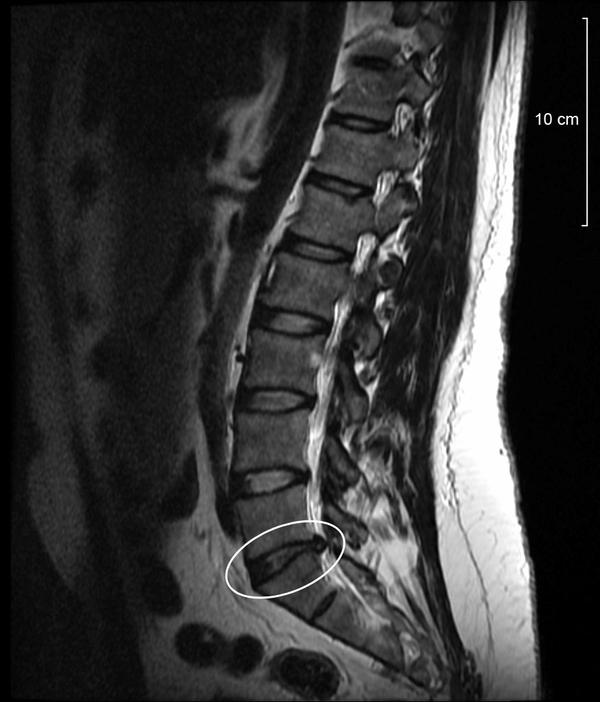
I am a firm believer in knowing exactly what the issues is that you’re dealing with. You can’t attack your back pain by throwing different exercises and treatments at it hoping one will stick. There is a time and place for experimenting but for now stick to what you know or what you trust your specialist has suggested.
Almost all spine centers have MRI capabilities. For me personally my first stop was at the Orthopedic Spine Center in Newport News, Virginia (home town). I actually had two MRI’s done over a 2-3 year period from the same place. I did this to first find out what the heck was wrong but later would use the second one for an update and to seek more opinions on treatment and to shape my recovery.
The goal of the MRI is to have (what you hope is) your specialist give you his super expensive, doctoral opinion of the picture in front of him. You need to find out EXACTLY what is wrong. The exact location, the tissues involved, extent of the damage, whether it’s a bulge, fracture, rupture or what. Have him explain in detail. Not just spout off a bunch of $2 textbook anatomy terms. Make him make it simple. He/She will most likely give you a CD copy with a typed up version of the diagnosis. You want to keep track of this! Hopefully your MRI findings were clear and precise. Now you can move on to the next step.
If you don’t have to go through surgery DON’T. If pain meds are needed think short term not long term. If you can manage the pain without taking drugs DO IT! If you pass on the drugs and surgery your next step will probably be seeing a therapist. Lets talk about that.
Physical Therapy/Physiotherapist
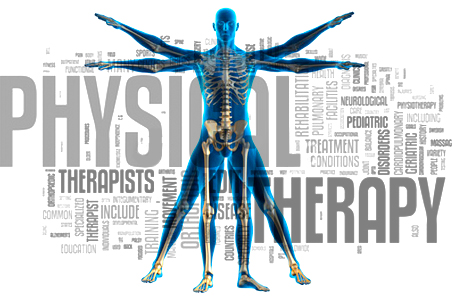
Just say NO to surgery. Like I said above, the doctor will more than likely give you two options, surgery/drugs or therapy. If you’re not in any major pain and have not lost control of basic body functions, then hold off on surgery. In a serious situation surgery may be the only option but 80% of back pain suffers could vouch for therapy first. Finding a good therapist is another question. Just like chiropractors and massage therapists, you have to really do some research to find a good one. In the case where your doctor has referred you to his own clinic you can start with that but if none of them seem to fit you can branch out and more searching.
What to look for in a Physical Therapist/ Physiotherapist
*Side Note*
I could probably be crucified by either a licensed PT or Physio for grouping these two together. I am not going to say there isn’t a difference between these two but I have met a lot of great PT’s that could run circles around a Physio in there knowledge vs application and results and vice versa. Please correct me if I am wrong but Physios seem to focus more on hands on manipulation, massage and even going as far as dry needling and acupuncture. Not that PT’s can’t do that but typically Physios seem to be more of a one stop shop. Which to me seems pretty cool but I had a hard time locating a good Physio within my local area.
Okay, so when it comes to picking a therapist…
I wouldn’t say the older the better but you want to find someone who has experience with treating back issues. Some guy/gal fresh out of college will have some experience but in my opinion I would search for someone a bit more seasoned. Some therapists will even go so far as to do continued education in diagnostic protocol such as the Functional Movement System . Education like this will allow the therapist to offer more of a functional approach to correcting your issue rather then relying on text book or universal “safe” approach. My first experience was with a PT who was actually pretty well known. I don’t remember much of the assessment other than him looking over my MRI’s and making a few comments. From that day forward my weeks consisted of the Thomas Stretch, some hip thrusts and 15+ minutes of traction. All were great but back then I really didn’t understand my issue had nothing to do with compression. I wasn’t experiencing nerve pain and showed no sign of compression related discomfort…so why the Traction?
This is the kind of stuff you gotta watch out for. Not that Traction messed me up or did any kind of permanent damage but it wasn’t really bringing relief and seemed to make my bad days even worse. Looking back now I can say it wasn’t really necessary.
With no exception they need to asses your movement…I mean really assess your movement.
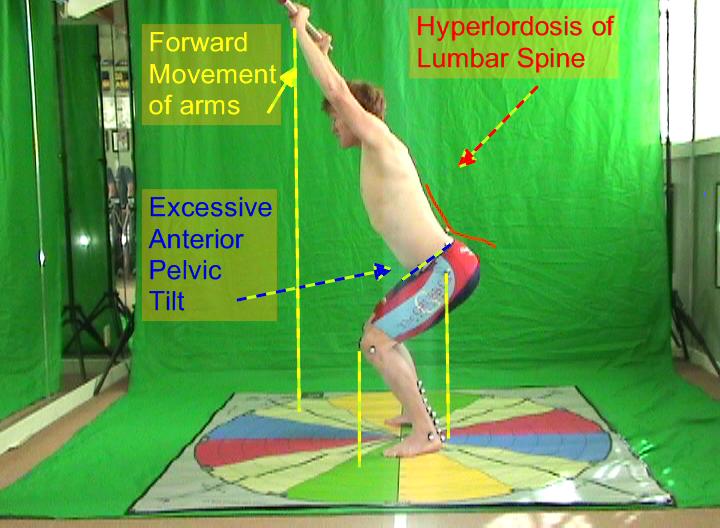
The most important thing when seeing a therapist is that you want him/her to asses your movement. If you’re dealing with a bulging disc he/she should be assessing you the second you stand up to shake his hand. There are so many aspects to back pain that it has to be looked at as an all encompassing issue. If you walk into an evaluation room and he just looks at your chart and says well, looks like you have some bulging discs. I’m going to get you started over here with “insert tech name” and we will get you out of here in no time. WRONG. You can’t just give someone a few pelvic thrusts and core stability exercises and think it’s going to help a bulging discs. These doctors know this but most of the time they don’t want to take the time or they can’t take the time to explain to you in more detail why you may be in the position you are in now and to give you a good once over to asses even your most basic movements. It’s in those flawed, un-managed movements that a lot of people will find their root cause of their pain. Not everyone but a large portion.
In my opinion, a good therapist will spend just as much time asking you questions and putting you through movement assessments than he will just “treating” you. You may have a bulging disc but how did it get there? It could be a combination of your 10 years as a desk worker and your form when doing things like bending and lifting. All of these will make a big impact on your recovery and keep you out of the clinics rather than becoming a repeat customer. When dealing with damage to the spine, you have to look at all aspects of the injury. It could be a cumulative event, so focusing on just the bulge would be only half the battle.
Other alternative medicine options…
Chiropractors, Massage Therapists and other special treatment options.
When dealing with Chiros. (Chiropractors) or manual therapists you really have to be picky with who you see. Just because they have a license does not mean they are a good choice. I personally have committed myself to a program from a Chiropractor which I will go into detail in an up and coming article. The lengths I went through to find him were extensive and to be honest there are still things…a lot of things, that I don’t like. Stay tuned for that!
My first step was locating a certified sports specific Chiropractor such as those at the Cobb Chiropractic Clinic. I figured at least he/she would have a better understanding of my active lifestyle and how it may contribute to my discomfort. I was given a website to locate a local sports specific doc which helped a lot in narrowing down my choices. From there it came down to scheduling a consultation and watching him in action.
3 things you always want your doc (this includes all specialists you may see) to prove to you before he/she treats you
-
Confirm the issue you have already been diagnosed with. Don’t just let him take your word for it.
-
Get him/her to explain to you why they chose (insert treatment) for your specific injury.
-
Get them to explain in detail how they are going to fix your specific problem with the chosen technique.
-
If you can, have an understand of what the specialist offers and spend time talking about the exact treatment you are interested in. This typically works better if you have a strong knowledge of your issue and have more of an understanding of treatments and what they do.
Nowadays, Chiros and other alternative medicine are becoming more and more versatile in their treatment. Chiro’s don’t just pop your neck and tug on your fingers any more. The good ones will have certifications in treatments such as Graston or Faktr along with various manual release techniques. These options are extremely important when your looking for someone to work on you. If you choose to see a Chiro keep in mind that it’s not just an “adjustment” that is going to make you better. Adjustments may feel good at the time but treating the issue that is pulling you out of alignment is even better. When seeking out my Chiropractor the last thing on my mind was getting adjusted. I was more interested in postural, and mechanical analysis then getting popped. I wanted to improve the way I moved, if that meant getting a few things reset I was down but I had my eyes on way more than just one thing.

So, who is the best?
It comes down to 4 basic things.
-
Find out what your issue is.
-
Do your research and get familiar with your specific problem. Know it inside and out. Everything from the pain triggers to what you can do to bring relief.
-
Find a specialist who specializes in assessing movement along with corrective exercises. This could be a PT, Physiotherapist or a Chiropractor. Don’t be close minded to any of these sources of treatment. They are all valuable in their own way. It just may not be the way you need.
-
When one of these can’t meet your specific need then find the person who can.
So you tell me. Who have you seen in the past and what have you had the most success with? I want to know! Let me know on here or over on Instagram! @Fitness4BackPain
Thanks for reading!
William
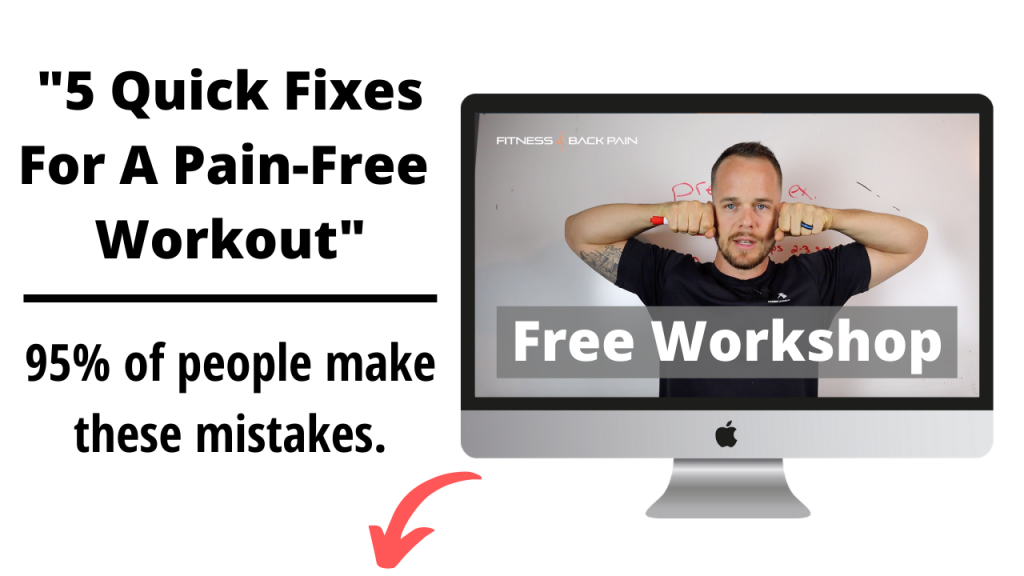
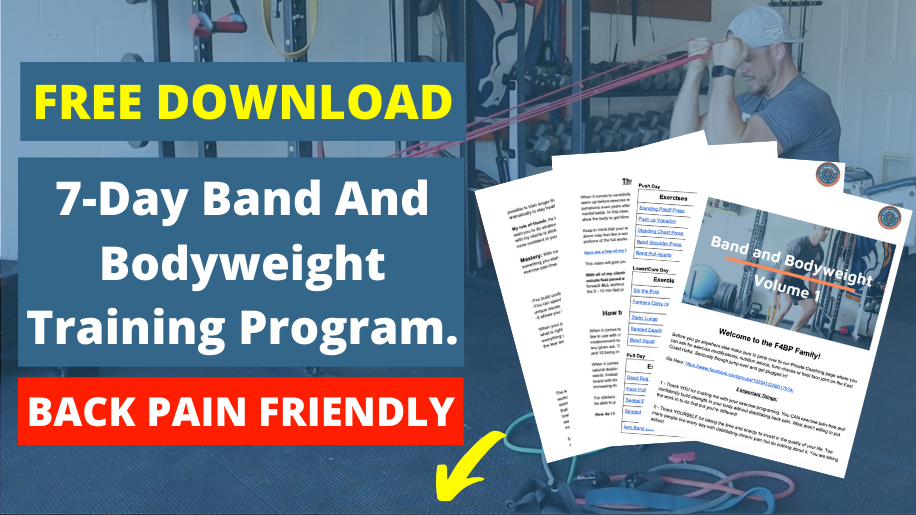
I visited a Physical therapist for my back pain last year. I am now on my way to recovering from a severe back pain due to an accident.
I am glad you found someone you can trust! keep us updated on your progress!
Do you suggest a standing MRI or a lying MRI?
Hey Alex,
The MRI scan that I did was an open, lying MRI. I think it all depends on what you have available. Considering the time spent in the scanner I would suggest a lying one though.